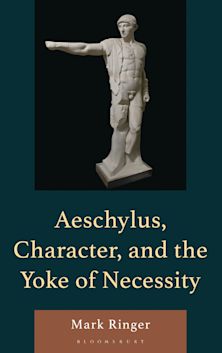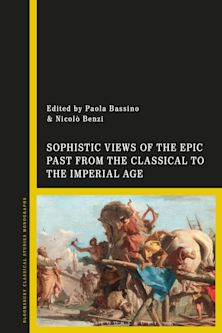- Home
- ACADEMIC
- Classical Studies
- Ancient Philosophy
- Philoponus: On Aristotle On the Soul 2.1-6
Philoponus: On Aristotle On the Soul 2.1-6
Philoponus: On Aristotle On the Soul 2.1-6
This product is usually dispatched within 10-14 days
- Delivery and returns info
-
Free UK delivery on orders £30 or over
You must sign in to add this item to your wishlist. Please sign in or create an account
Description
In On The Soul 2.1-6, Aristotle differs from Plato in his account of the soul, by tying it to the body. The soul is the life-manifesting capacities that we all have and that distinguish living things, and explain their behaviour. He defines soul and life by reference to the capacities for using food to maintain structure and reproduce, for perceiving and desiring, and for rational thought. Capacities have to be defined by reference to the objects to which they are directed. The five senses, for example, are defined by reference to their objects which are primarily forms like colour. And in perception we are said to receive these forms without matter. Philoponus understands this reception not physiologically as the eye jelly's taking on colour patches, but 'cognitively', like Brentano, who much later thought that Aristotle was treating the forms as intentional objects. Philoponus is the patron of non-physiological interpretations, which are still a matter of controversy today.
Table of Contents
Introduction
Textual Emendations
TRANSLATION
Notes
Bibliography English-Greek
Glossary Greek-English Index
Index of Passages Cited
Subject
Index
Product details

| Published | 10 Apr 2014 |
|---|---|
| Format | Paperback |
| Edition | 1st |
| Extent | 192 |
| ISBN | 9781472557728 |
| Imprint | Bloomsbury Academic |
| Dimensions | 234 x 156 mm |
| Series | Ancient Commentators on Aristotle |
| Publisher | Bloomsbury Publishing |
About the contributors

ONLINE RESOURCES
Bloomsbury Collections
This book is available on Bloomsbury Collections where your library has access.



































